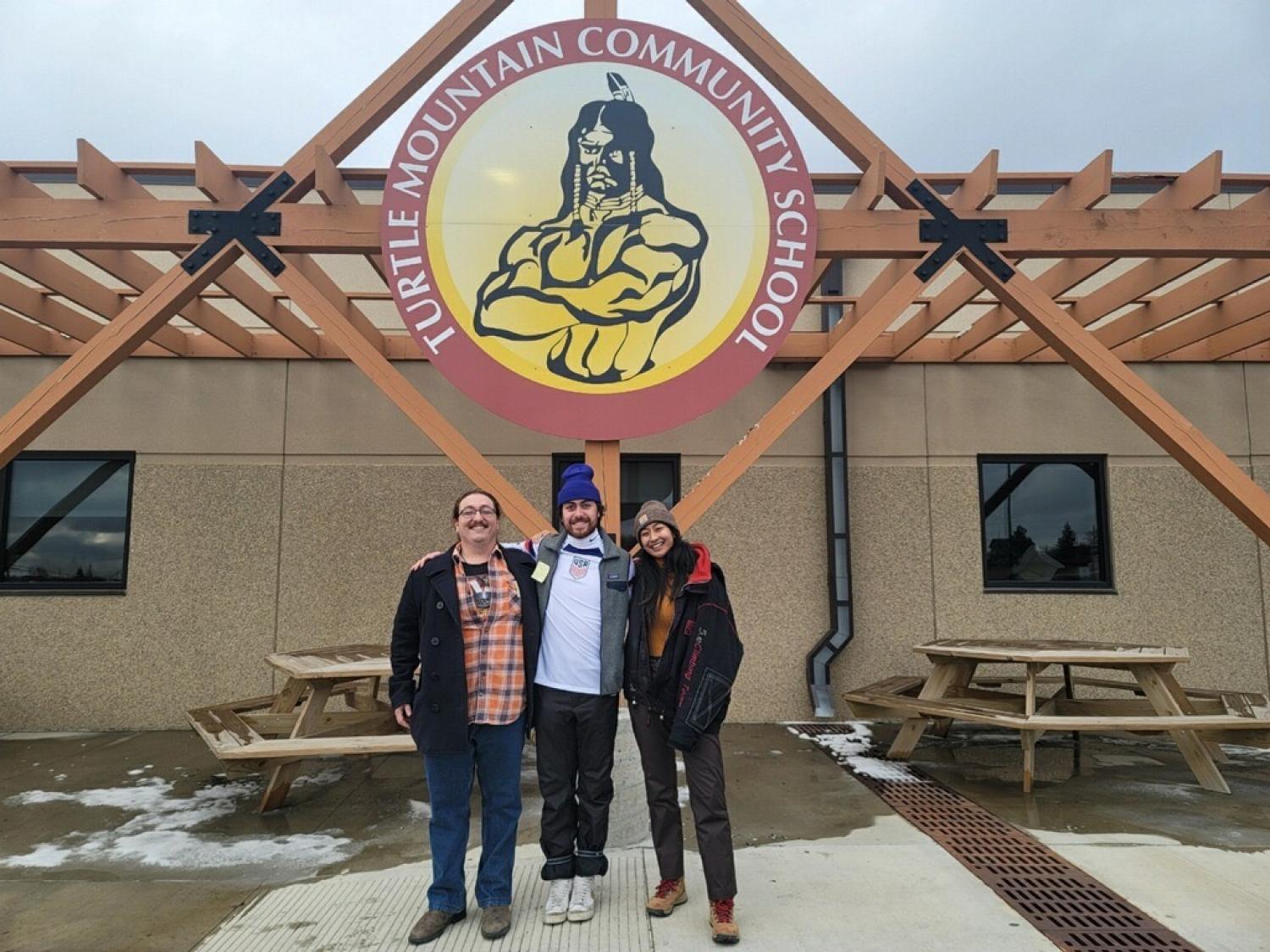Empowering Native Voices: The Natives Vote Initiative
Originally published in CU Boulder Outreach and Engagement Program News on Nov. 29, 2023.
In 2018, a change in North Dakota’s voter ID requirements posed a potential threat to the voting rights of tribal members. In response, the Natives Vote team, a collaborative effort including the American Indian Law Clinic at Colorado Law, First Peoples Worldwide, IllumiNative and Native Organizers Alliance, was launched to address the unique challenges faced by Native communities in exercising their right to vote. Funding from these partners and the Office for Outreach and Engagement makes this program’s initiatives possible. The American Indian Law Clinic’s work has two focuses: one being a website to educate potential votes, the second being an onsite presence to intervene when elections are not being run properly.
Christina Stanton, director of American Indian Law Clinic, inherited work on the Native Voter Education project from the previous director, Carla Fredericks, integrating their knowledge of Indian Country and United States voting laws. The opportunity for Frederick to pass the baton to Stanton emphasizes the importance of working in coalition, motivating both parties to succeed and continue their work with Native communities.
“There were a bunch of resources for people to gain literacy about how to get to the polls and what the voting requirements were for each state. None were targeted specifically for Native voters,” said Stanton.
The goal of the Natives Vote team was to come together as organizations familiar with Indian Country and to develop a specific product for Native voters to help get out their vote and amplify their voices. First Peoples Worldwide, IllumiNative and Native Organizers Alliance worked with the American Indian Law Clinic to develop the Natives Vote website ensuring that casting a vote can be simple.
The Natives Vote website offers assistance with registration, mail-in ballot information and clarifies the proper identification to bring to the polls. The website shares the laws of each state, which requires extensive research because the laws are constantly changing. The clinic begins updating the website with law changes and other relevant information in early fall and continues through election day. The work of the initiative’s partners is a continual process of making sure everything is up-to-date while assessing the needs of voters. Many states are adapting and giving voters options for how to cast their ballots. Although every state has absentee voting, there are still obstacles in certain states that may prevent one from voting at the polls. For example, voting in person means facing long lines, limited poll locations, specific identification requirements and inadequate poll-worker training.
CU Boulder staff and law students also worked alongside coalitions to conduct assessments through poll observations on and around different reservations. The needs of every state are captured on the website, but poll observations are conducted primarily in states where the need is most significant. Doing so ensures that people living in areas with restrictive voting laws and practices can vote.
“Giving people access to the ballot box is critical for any election,” said Stanton, “We want everyone to be able to have a voice in this democracy. Being able to go somewhere, have no barriers and have your tribal ID accepted is so important.”
In 2022 Stanton traveled to North Dakota alongside some of her students from Colorado Law. North Dakota does not require voter registration, and any resident should be able to vote with proper documentation. Poll workers do not always apply the law accurately. Colorado Law students observed workers using unnecessary lists to identify someone’s name and address. The practice of using certain lists, such as 911 records, confuses potential voters and causes people to walk away. Election observations and real-time interventions help prevent such scenarios and ensure that casting a vote can be simple for tribal members.
The Natives Vote initiative stands as a demonstration of the power that collaborative effort holds in promoting democracy and inclusivity. By addressing specific voting issues, providing accessible information and fostering indigenous-led advocacy, this initiative strives to ensure that every Native American has the opportunity to exercise their right to vote. You can learn more about American Indian Law Clinic: Native Voter Education or contact the director, Christina Stanton.



